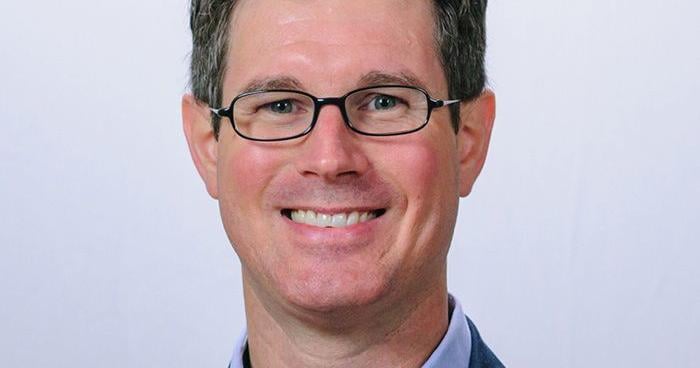Fitness
How Xiaoning Smith Went From Pianist to Fitness Entrepreneur

This story is part of AAPI in Fitness, a series of articles highlighting the challenges and triumphs of fitness trainers, athletes, and gym owners from the Asian American and Pacific Islander communities. Read the rest of the stories here.
XIAONING SMITH IMMIGRATED to the United States from China in her teens to pursue a career as a classical pianist. A few decades and a pandemic later, she now owns and operates Mayweather Fitness Tribeca in NYC and Mayweather Fitness Nashville in Tennessee—on top of teaching her own fitness classes.
Having never stepped into a gym until her arrival to the U.S., Smith was initially invited to one by a friend when she first moved, and immediately built an affinity to it. What started as a love affair with step classes built into a passion that ultimately shaped her into a fitness industry leader.
Succeeding in a white male-dominated industry hasn’t been easy for a first-generation Chinese-American woman like Smith. She allowed societal assumptions to trickle into her view of herself as a worthy leader in fitness. “I was stereotyping myself. We’re known for being academically successful, not athletically,” she says.
Now, she’s dedicated to using her platform and space to create a welcoming environment for all people to come exercise. The community she has created, and continues to create, “has made it all worth it.” MH spoke with Smith to discuss her journey.
MEN’S HEALTH: How did you get your start in fitness?
XIANING SMITH: I was born in Shanghai, China, in 1974, meaning China was still on the tail end of the Cultural Revolution. People don’t really realize what life was like back then. For example, my parents were educated teachers, and we lived in a one-room apartment with only a bed, cement floors, and no paint on the walls. It was a different time.
My father was a big classical music fan, but didn’t get to pursue it himself. He decided he would like me to learn how to play the piano. I started, and practiced pretty intensely, because back then, this was never a hobby. This was your way out. For college, I came to America to pursue a music career.
My second year of school, my roommate [gave] me her gym membership to use because she thought I might like it. I’d never been to a gym—fitness was a not a thing back in China. They we didn’t even have them, and there weren’t really recreational sports. So I went… and at first, I thought to myself, “this is what people pay to do in this country?”
Then I took my first step aerobics class, and I was hooked. I’d even help the instructor sometimes when she’d lose the count to the music. I slowly got more into it. At one point, I decided I want to learn how to lift weights. So I bought a book called Body for Life. I taught myself the basics. I really enjoyed learning about fitness so much so that I actually got my own personal training certification, without any intention of using it for work. I just really wanted to learn.
I don’t think I realized the passion I had for it for a while, but I am very disciplined in terms of having a routine, which came from piano practice. I was used to doing things that I didn’t quite enjoy in the moment, even when it was something I needed to do. Same is true for fitness, but it was way more fun. That grew and grew—but I dragged my feet for so long making it into a career. I didn’t think I had it in me to be a trainer or group fitness instructor. I didn’t grow up an athlete and didn’t dedicate my education to this. So, after I graduated college, I taught piano and I opened my own music school in New Jersey. I did that for a good 18 years.
Then the pandemic hit. Just for the sake of having something to do, I started teaching Zoom workouts with my friends. I loved it. As the world started to reopen, though, I went back to working out for myself. Until, just by chance, I heard Mayweather Fitness Tribeca was looking for an investor. I’d already opened up my own music school, so I knew business. I decided to give it a go. And in terms of teaching—it was perfect. I had the equipment, I had the facility. I thought to myself: “if I don’t start teaching now, will I ever start?”
So now I teach a small strength class a few days a week, and a few of the non-boxing Mayweather-branded classes. It’s been amazing—the community and the impact I’m able to have on people has made it all worth it.
MH: Have you found that you are the only person who looks like you in many/most of the rooms that you’ve been in over your career? If so, how have you traversed that space?
XS: I did early on. Even I would joke about it. I would joke about how Asians are not athletic, and how we can’t jump. I remember being in a class one time, and the instructor told me to jump with both feet. I said back, “I’m Chinese, we don’t jump.”
I was stereotyping myself. We’re known for being academically successful, not athletically. I definitely felt a little bit out of place in the early years of working out. The thing that kept me coming back, though: I really liked how I looked.
Every time I went back home [to China], I got all sorts of looks on the street. People may not say it, but I’m way more muscular than most women are in Asia. Sometimes people would ask if I’m an athlete. But, it was all in a positive way. So I think I’ve been lucky in the sense that it didn’t feel too out of place, but I feel the responsibility of doing more in connecting Asians with fitness because of this.
MH: What do you view as the biggest challenge as someone from an AAPI background both in training and gym ownership?
XS: As an immigrant Asian American woman in the fitness industry, I have seen my fair number of challenges. It’s difficult to be in an industry where you don’t feel like you belong.
Coming from a career as classically trained pianist, I have definitely felt a shift. I went from a field where Asians are not only well represented, but also recognized and respected, to an industry where we are very underrepresented and certainly not recognized. I feel that we have to work extra hard to prove our value, and the pressure of “looking the part” feels higher because people are skeptical when they see an Asian trainer or gym owner. It was much easier to gain respect as a pianist.
MH: What do you think can help to make the industry more equitable?
XS: Representation is always helpful. If I were teaching math, or if I were a doctor, I feel like people would come to me and trust me. Because there’s not a ton of Asian representation in the fitness world, I’m not sure there’s a lot of trust in coming to the lifting class of an Asian woman in her 40s. So I need to continue to educate myself to get better and perfect my craft to prove that I am trustworthy.
Also I think when the culture starts changing in terms of looks, especially with women in Asian cultures and what’s considered attractive for them. I think we’re starting to get there. When that shift happens, there will be a bigger movement to exercise.
The way to making it more comfortable for others is building community. The thing I love most about fitness is I’ve met so many amazing people. I’ve made so many friends through it—it’s something about doing hard stuff together. So, what I’ve started doing is planning a few special events, partnering up with the Asian community to bring awareness to the importance of exercise, and create a comfortable place for others to come try exercise.
Want to learn more about AAPI fitness pros overcoming obstacles, breaking barriers, and finding success? Click the link below to read all the stories.











